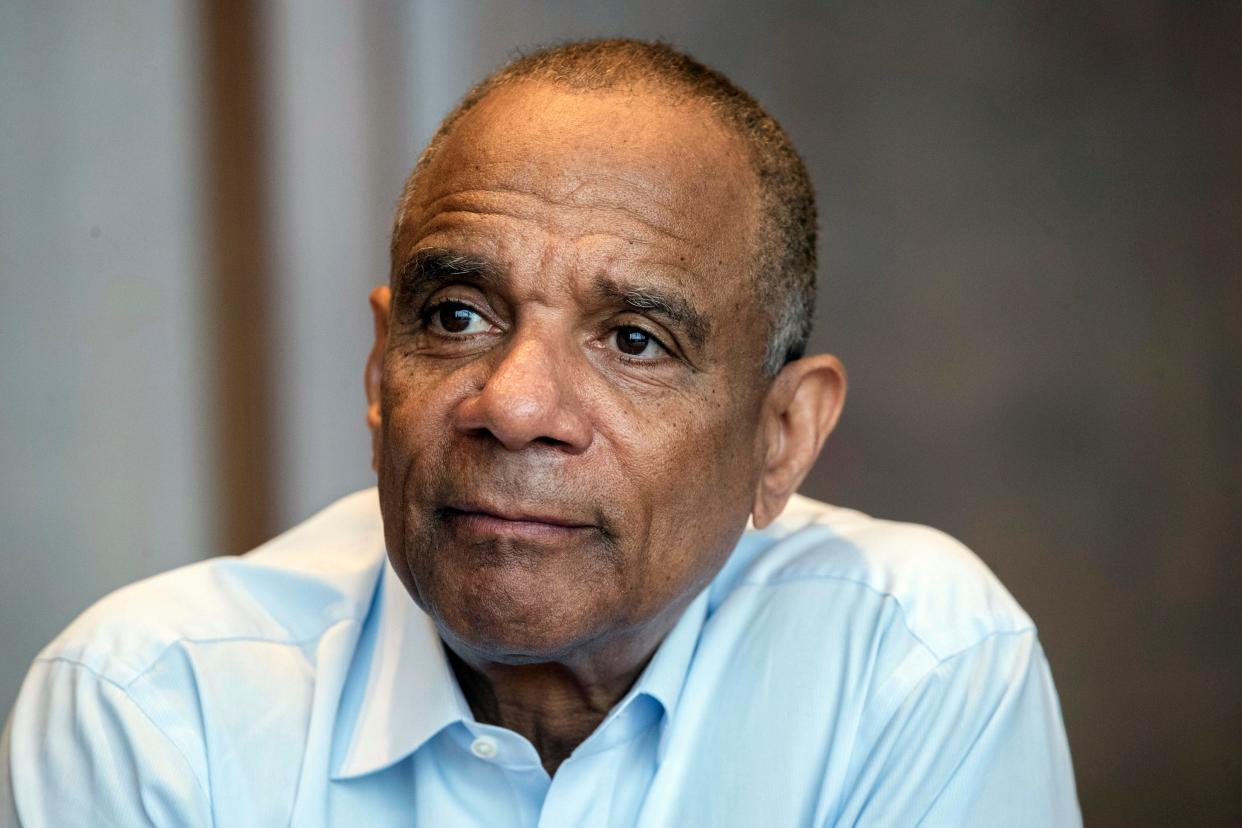100 top business leaders met to discuss halting donations to politicians who back 'restrictive' voting laws, including in Georgia

- Oops!Something went wrong.Please try again later.
Top business leaders met on Zoom this weekend to map out their response to new voting restrictions.
The WSJ reported that CEOs were asked to sign a statement opposing restrictive voting legislation.
The CEOs discussed halting donations to politicians supporting the bills and stopping investments in states that pass the laws, the Post reported.
More than 100 CEOs and senior leaders on Saturday met on a Zoom call to map out how businesses should respond to new voting restrictions that are set to be enacted in Texas and other states across the country.
The executives discussed ways to oppose the voting laws, which were first enacted in Georgia.
This included halting donations to politicians who support the bills and postponing investments in US states that pass the legislation, four people who were on the call told the Washington Post on Sunday, including one of the organizers, Jeffrey Sonnenfeld, a Yale management professor.
In the wake of the controversy surrounding Georgia's new voting law, SB 202, with Major League Baseball pulling the 2021 All-Star Game from the state and companies like Coca-Cola and Delta pushing back against restrictive voting provisions, this effort would represent a significant development in the corporate sector weighing in on voting rights.
During the call, Kenneth Chenault, the former CEO of American Express, and Kenneth Frazier, the CEO of Merck & Co., asked the leaders to "collectively call for greater voting access," according to the Wall Street Journal.
Chenault and Frazier, two of the most prominent Black business leaders in the US, also reportedly told businesses not to walk away from the voting right issue and requested that CEOs sign a statement "opposing what they view as discriminatory legislation on voting."
The statement from a new constellation of business leaders could be released as soon as this week, according to the Journal.
Sonnenfeld told the Post that the CEOs "felt very strongly that these voting restrictions are based on a flawed premise and are dangerous."
Last month, 72 Black executives signed an open letter that was featured in The New York Times, asking for companies and business leaders to offer pushback against legislation that would infringe on voting rights.
Chenault informed the business executives on the call that several leaders would back the effort, including executives at PepsiCo, PayPal Holdings, T. Rowe Price, and Hess, among other companies.
"This is a nonpartisan issue, this is a moral issue," he told the Journal last month.
Read more: Introducing Todd Young, the most important senator you've never heard of
Frazier said that as an increased number of states take up legislation similar to Georgia's SB 202, companies have to take action.
"This is not a Georgia issue," he told the Journal.
The Georgia law tightens election rules in the state by limiting drop boxes, strengthening voter identification requirements, and blocks the use of mobile voting vans, among other measures.
Mellody Hobson, the chairwoman of Starbucks Corp., said on the call that the controversies surrounding the new voting laws are "bad for business" and hopes that businesses can devise ways to work on voting issues, according to the Journal.
AMC CEO Adam Aron, Estée Lauder Cos. director Lynn Forester de Rothschild, and CyberCore Technologies CEO Tina Kuhn all reportedly backed the new statement, according to the Journal report.
As some companies have become increasingly vocal about voting access, Republican leaders from Gov. Brian Kemp of Georgia to Senate Minority Leader Mitch McConnell of Kentucky have railed against pushback to the new legislation.
Kemp has accused business leaders of adhering to "cancel culture" and McConnell recently warned them not to become "a vehicle for far-left mobs."
But some companies are hesitant to jump into any hotly-debated political issue altogether, aware that any position that take could alienate a portion of their business or customer base.
"It's really a no-win situation from a corporate standpoint," a Fortune 100 business executive told the Journal.
Read the original article on Business Insider
